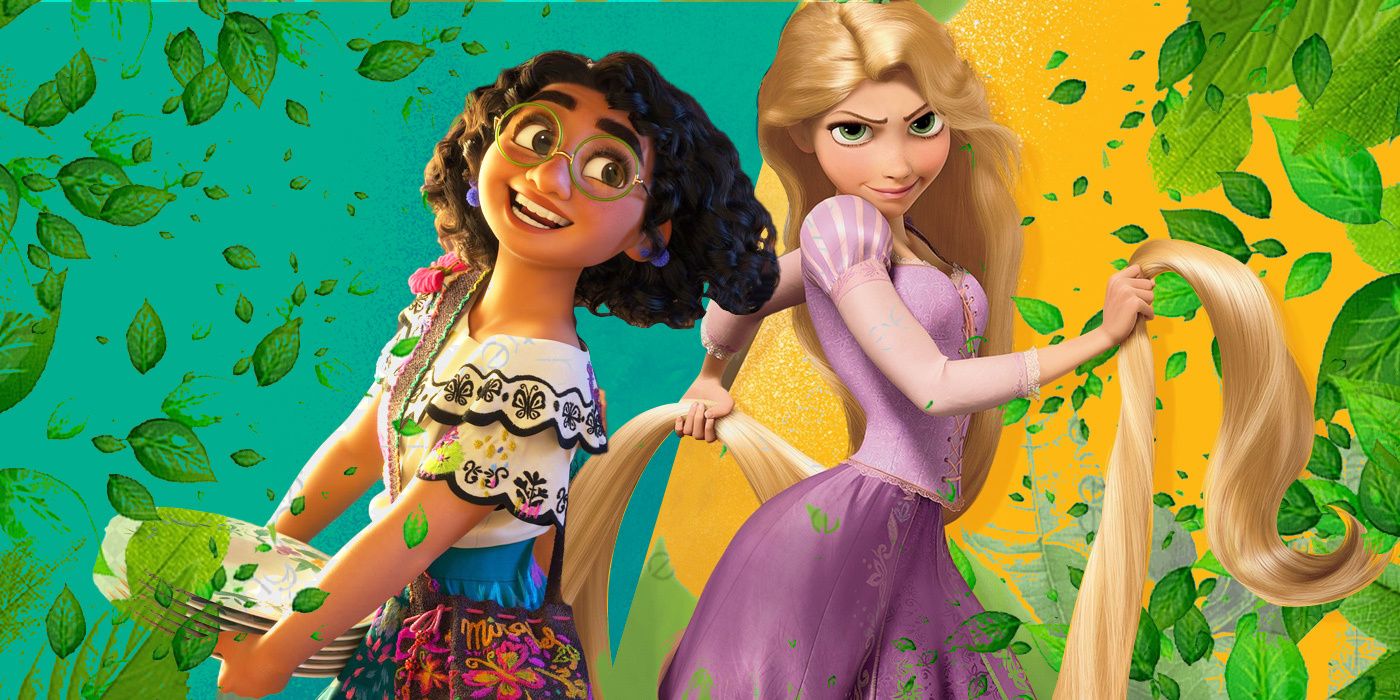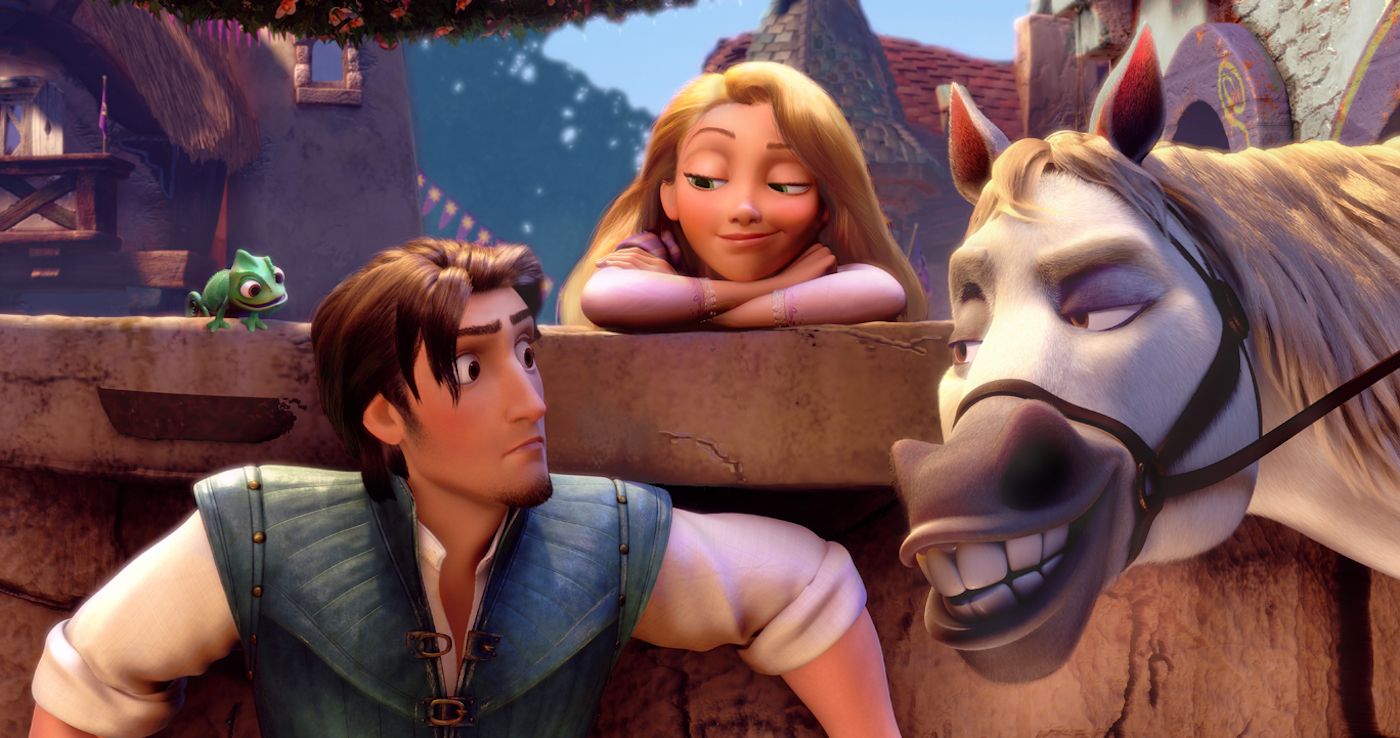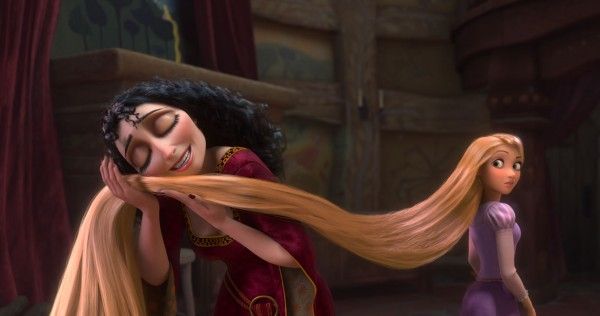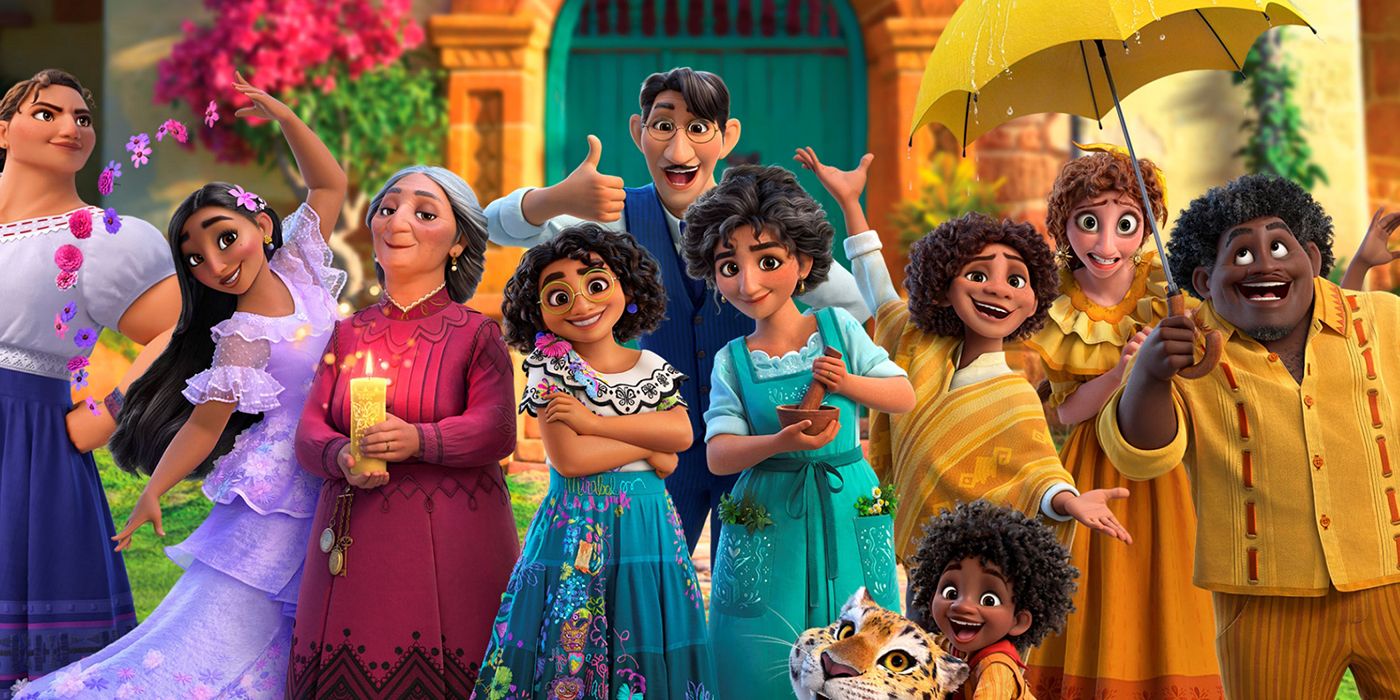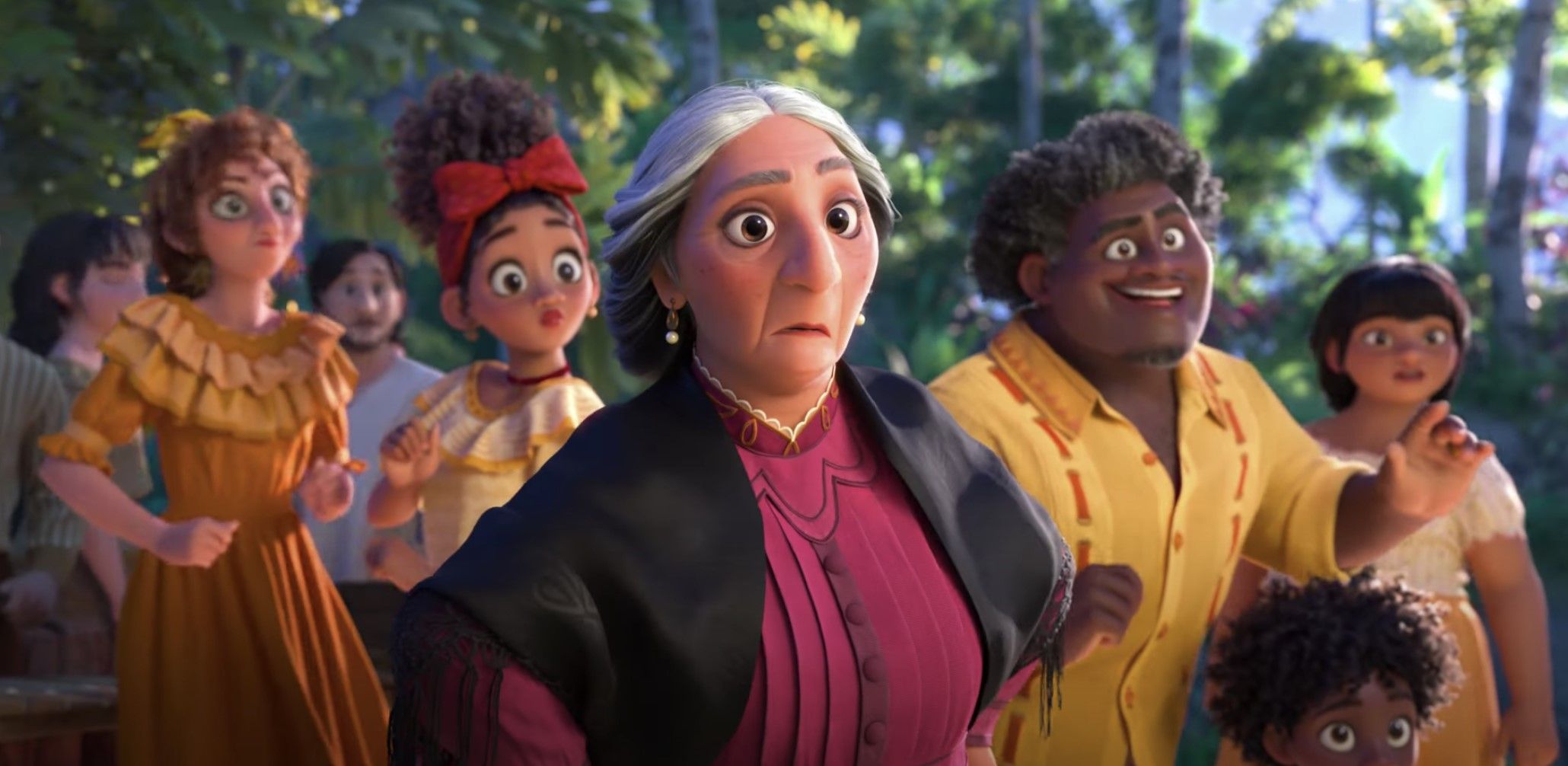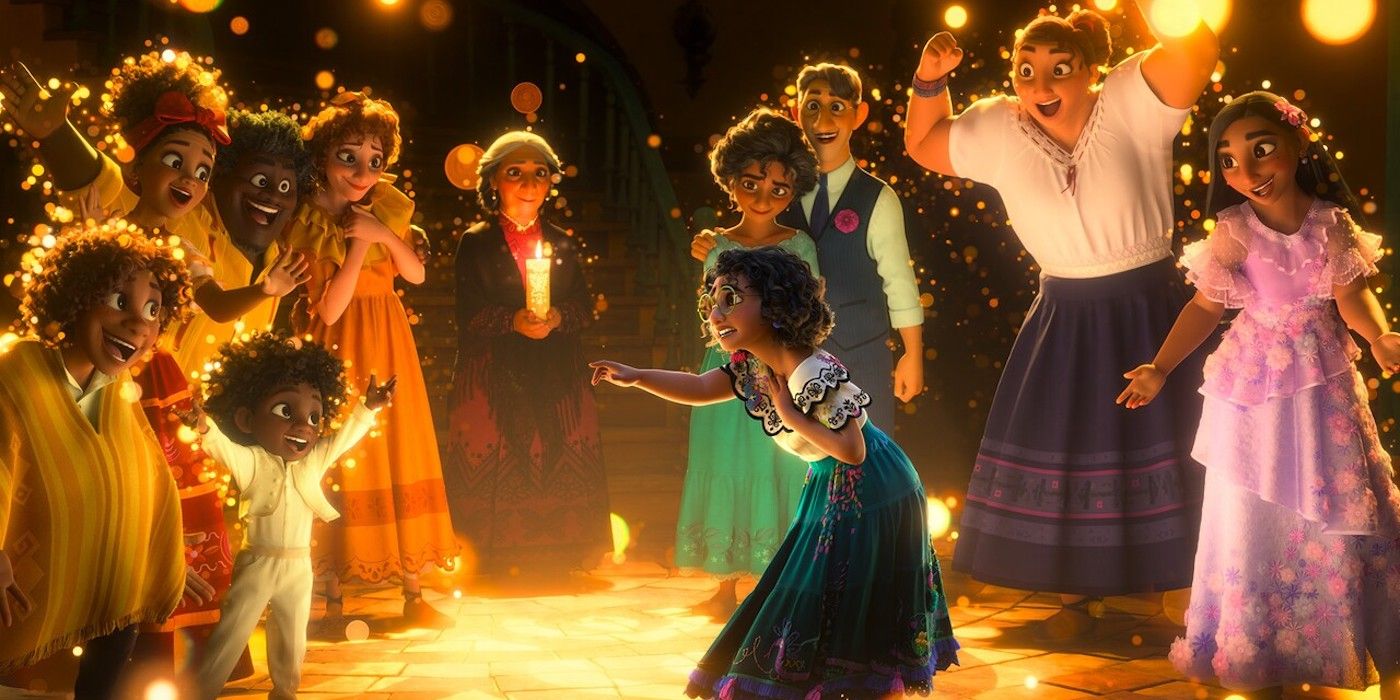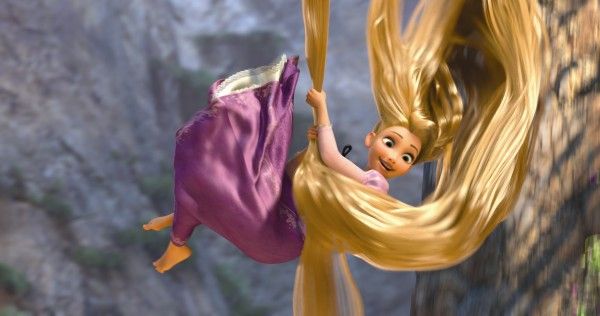Family appears as a common thread across many Disney films. From The Little Mermaid to The Lion King and all the way back to classics like Pinocchio and Dumbo, Disney’s animated features have found ways to show positive and negative aspects of domestic life.
Flash forward to now, and Disney is still tackling domestic relationships, leaning heavily on the toxic form. Tangled and the recent Encanto – both co-directed by Byron Howard – examine harmful family relationships that come off as especially modern despite the non-specific time periods in which the films are set. Both films succeed at showcasing damaging domestic relationships, becoming cinematic examples through which children can learn to identify these types of unhealthy dynamics.
Tangled harkens back to the evil stepmother films of Disney’s past. Come to think of it, Mother Gothel (Donna Murphy) is one of the last original evil adopted mother characters Disney has employed over the last decade (Cinderella and other remakes not included). Unlike others, Mother Gothel is clearly a villain but puts on the act of being a nice mother. She mostly jokes with Rapunzel, using said jokes to disguise her insults. Mother Gothel criticizes Rapunzel for pulling her up the tower too slowly – using Rapunzel's hair mind you – and then says, “Oh darling, I’m just teasing,” and chuckles as she walks away, denigrating Rapunzel’s confidence.
This is Mother Gothel's common tactic in the film – playing off belittling comments as humorous before laying down the hammer. She stands in front of a mirror with Rapunzel and comments on seeing a beautiful young woman, then says, “oh look, you’re here too.” Mother Gothel laughs and says, “I’m just teasing, stop taking everything so seriously.” This coming from the person who needs to trap a teenager in a tower to stay alive. She then keeps interrupting Rapunzel when her “daughter” tries to ask her about seeing the lanterns while mocking Rapunzel for “mumbling.”
Mother Gothel sings a whole song repeating the same playbook in Mother Knows Best. She playfully calls Rapunzel a “flower” to insinuate she’s too weak to leave the tower, alluding to the magic flower Rapunzel’s mom ate to stay alive and Gothel used – and still uses – to stay young. At the end of the song, Gothel firmly tells Rapunzel to never ask her to leave the tower again and Rapunzel just says, “yes, mother.” Even the way Mother Gothel says, “I love you most,” to Rapunzel feels like a power grab.
Gothel portrays a perfect example of an abusive parent through emotional warfare. She hides behind jokes and baby talk, lulling Rapunzel into a state of feeling weaker and less knowledgeable than she is, and it works like clockwork for nearly eighteen years. Rapunzel’s only friend is Paschal, a chameleon, and she has to keep him a secret from Mother Gothel. Gothel's mistreatment of Rapunzel is subtle enough to show children what that kind of situation may look like while also presenting a route out. Granted, in real life dapper thieves won’t necessarily just pop into your window to take you to see lanterns fly out of a palace, but the idea of Rapunzel's escape suggests that you can get help in other ways by exploring and seeking helpers.
Now, how does this compare to the seemingly lovely Madrigals of Encanto? Like the film's opening number implies, the Madrigal family comes off as “fantastical and magical.” Yet their collective tension and anxiety become more apparent as the film goes on. Indeed, the Madrigal family dynamics are built on stress, based on Abuela Alma’s (María Cecilia Botero) need for her family members to earn their miracle and be perfect guides to their community. Her comments towards Mirabel (Stephanie Beatriz) – namely, telling her to stay out of the way all the time and not help – belittles the only family member without a gift, even when Abuela Alma says so in a nice way.
Abuela commends Antonio (Ravi Cabot-Conyers) for his gift, for example, saying, “I knew you could do it." Mirabel listens as Abuela tells him, “A gift just as special as you.” Unintentionally, Abuela is putting Mirabel down, knocking her for not having the fortune of getting a gift while elevating Antonio. Later, Abuela makes her viewpoints on the gifts clear at breakfast. She tells Antonio in front of the whole family, “I’m sure we’ll find a way to put your blessings to good use.” Antonio had barely even gotten a taste of his gifts to talk to animals and he already must think about how he can work with them. That removes the fun of his powers and puts pressure on another sibling.
The rest of the family has to uphold the same standards. Abuela barely notices Isabella’s (Diane Guerrero) shocked reaction when she learns that her future husband wants five babies. Or that Isabella never wanted to marry Mariano (Maluma), but that she felt she had to because she needed to keep being perfect for Abuela. Not to mention Louisa (Jessica Darrow) sings a song about how she feels pressure to be perfect and make, “no mistakes,” and, “bend but never break,” to carry everything. She says she feels like she would be, “worthless,” if she is not strong all the time.
Abuela puts so much pressure on her family that Bruno (John Leguizamo) hides away to avoid angering the family because of his reputation. Dolores (Adassa) makes a point to say that Bruno, “always left Abuela and the family fumbling/Grappling with prophecies they couldn’t understand,” as a reason why she believed Bruno left, mainly because everyone saw his visions as negative.
Nearly every member of the Madrigal family across multiple generations feels the need to be perfect and useful rather than just be. They are an example of a unit that is teeming with unresolved conflicts and unnecessary spite towards one another – like Mirabel and Isabella’s sentiments throughout much of the film – that ferment until everything blows up. That literally happens with the casita falling apart and the family losing their gifts after Mirabel finally calls out Abuela for putting her family up to an impossible standard of perfection.
The destruction only ends once Abuela sees this and realizes that she has been holding in her emotions for too long, proving they need to earn their success at every moment. She felt that being perfect was the way to keep the gift, instead of working through their feelings as a family and embracing their imperfections, starting with Mirabel and Bruno.
Both Tangled and Encanto showcase grounded toxicity in domestic relationships in ways children can understand. These films each also show how to move forward and heal. Their starting points on that similar path toward healing, though, differ. Mother Gothel begins from a place of trying to hold Rapunzel hostage in a remote tower to stay alive and young. Gothel and Rapunzel’s relationship was forged completely on control and one-sided gain, though – not to mention she stole Rapunzel as a baby. Abuela, on the other hand, believes everything she is doing is best for her family's survival. The Madrigals still work as a family by the end of the film because though their foundation is faulty for sure, it is still built on love.
While the two films diverge in these ways, they both show paths forward. Rapunzel is able to leave Mother Gothel because she has help from Flynn Rider (Zachary Levi) amongst others and she accepts others' kindness and family elsewhere. The Madrigals repair their house and their family because, deep down, they always wanted the best for each other from the get-go. Tangled and Encanto differ in many areas, but they both direct children in a similar way toward spotting complex family dynamics using animal sidekicks, musical numbers, and swirling animation.

